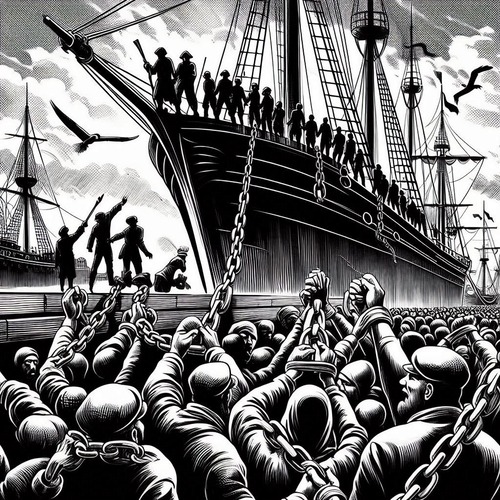Bible Texts on Slavery: How Should We View Them?
Bible Texts on Slavery: It’s true the Bible references and provides regulations around the practice of slavery in the ancient Near Eastern cultural context. However, a careful study shows the Bible actually introduced revolutionary, counter-cultural ideals that ultimately undermined slavery as an institution over time.
When examining biblical passages related to slavery, it’s crucial to consider the historical context. Slavery was a common social institution in the ancient Near East, including Israel. The Bible addresses slavery within this historical framework, but it doesn’t necessarily endorse or promote it.
The term “slavery” in the Bible encompasses various forms:
- Indentured servitude: People could voluntarily become servants to pay off debts or sustain themselves.
- Captive slaves: These were often prisoners of war or individuals from conquered nations.
- Permanent slaves: Some were born into slavery or sold into it due to extreme poverty.
Bible Texts on Slavery: In God’s Eyes There is Neither Slave Nor Free…
The Bible doesn’t endorse these practices, but regulates them. For example, the Law mandated indentured servitude could only be temporary, not lifelong (Exodus 21:2). It, however, prohibited kidnapping people in order to sell them into slavery—a key inhumane practice underlying the slave trade (Exodus 21:16, Deuteronomy 24:7). And it upheld the dignity, rights, and protections of slaves as human beings—very progressive for that time.
In the New Testament, Paul affirmed the equal human dignity of both slaves and masters (Galatians 3:28, Philemon 1:16, 1 Corinthians 7:21-24). They planted revolutionary seeds by teaching that in God’s eyes, there is neither slave nor free—just unified human beings with intrinsic worth.
Ultimately, it was this scriptural elevation of human dignity and equality, coupled with Christ’s moral teachings of love, service, and freedom that steadily dismantled societal acceptance of slavery over many centuries.
So while not condemning slavery with immediate abolitionist demands (which were culturally inconceivable then), the Bible inherently recognized the great moral evil of human beings owning others. It masterfully planted ideological seeds that gradually overcame this practice from within the existing cultural framework.
Modern readers who argue the Bible’s references to slavery are appalling—would do well to remember slavery was a globally accepted practice in the ancient world, and that Scripture doesn’t condone, endorse or morally affirm abhorrent practices such as slavery. In fact the Bible’s teachings had a large part to play in ethics moving past the prevalent cultural norms.
Editor's Pick
SUPPORT US:
Feel the Holy Spirit's gentle nudge to partner with us?
Donate Online:
Account Name: TRUTHS TO DIE FOR FOUNDATION
Account Number: 10243565459
Bank IFSC: IDFB0043391
Bank Name: IDFC FIRST BANK






